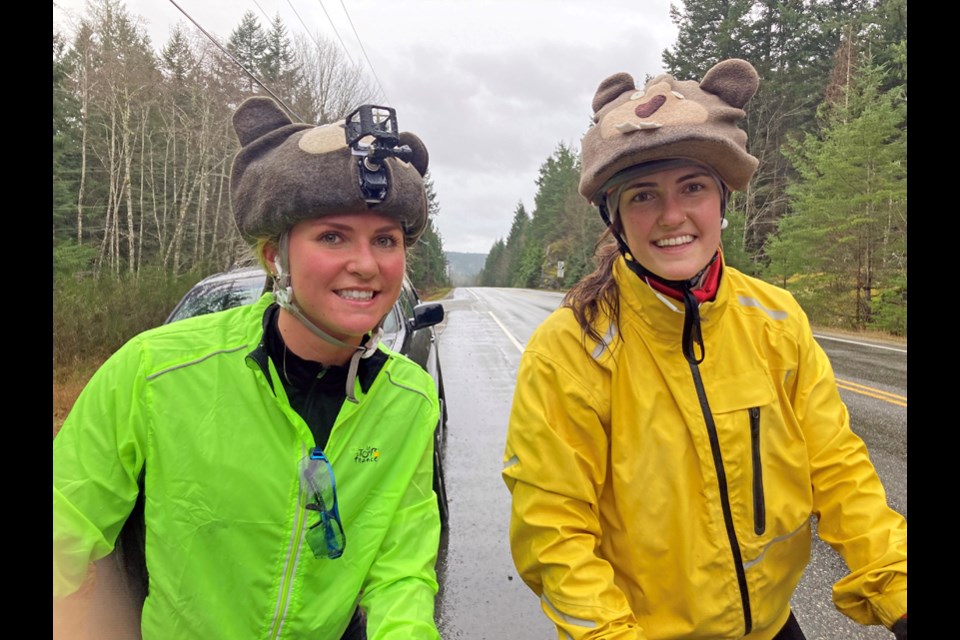Craig Campbell died Sept. 25 after living with primary progressive aphasia for the last decade. He was 64 years old.
Chantal Campbell, Craig’s younger daughter, described her dad as a “positive, easy-going guy who lived life to the fullest.”
Even when Craig developed a stutter 10 years ago – the first neurological sign that something was wrong – he maintained his larger-than-life ethos, said Chantal.
“You could tell he knew what he wanted to say, but he couldn’t articulate the words,” said Chantal. “He would write his words down.”
Primary progressive aphasia is a type of dementia that affects an individual’s ability to communicate. Over time, the individual can lose the ability to speak and write entirely, as well as understand language in general.
The disease eventually began to affect Craig’s other cognitive abilities as well, according to Chantal.
“Every day it was a new challenge. We had no idea what to expect,” she said. “It was quite the experience for all of us. There was no book on how to handle it.”
Following Craig’s passing, sisters Chantal and Tessa, as well as Craig’s wife Trina Campbell, started a fundraising campaign so that other families living through a brain disease in the future might be able to handle it with a little more ease.
After they shared their campaign online, it raised thousands of dollars in just a few days, according to Chantal, so much so that the University of British Columbia – Craig’s alma mater – asked to set up a direct in-memoriam fundraising page with donations earmarked to support the Djavad Mowafaghian Centre for Brain Health.
“The response we got was crazy,” added Chantal.
While the campaign started with a modest goal of $10,000, that number kept growing and growing until it landed at $50,000. To date, more than $54,000 has been donated.
And while the numbers kept growing, an idea kept building inside the sisters’ minds.
Craig had always been an avid biker, whether that be an outdoor adventure or downtown commute over the Lions Gate Bridge – by bike or unicycle – while wearing his signature beaver helmet.
Craig and his daughters had always talked about doing a final ride together and although they didn’t get to do that, Chantal and Tessa embarked on a wet and rainy bike ride from West Vancouver to Victoria via the Sunshine Coast and along Vancouver Island last month in his honour.
Along the way, Chantal and Tessa often wore the beaver helmet covers their father was fond of as they journeyed along the coast. “I think he would have absolutely loved it,” she says.
From Dec. 27-30 the sisters biked 320-kilometres as their mom kept pace behind them in a support vehicle.
“It was a bit of a wild adventure,” noted Chantal, who added that she was living in Australia prior to the pandemic and is currently waiting for a safe window to get back to the land Down Under. “We didn’t have that big of a window of an opportunity to do something like this.”
Currently, the B.C. government has stated that all non-essential travel within the province should be avoided because of the pandemic.
The family of three travelled together, wore PPE masks along the way, stayed at the family property up at Sakinaw Lake on the first night and lodged in hotels the other two nights, noted Chantal.
The B.C. Ministry of Health declined an offer to provide further guidance on outdoor recreation and travel for this story. However, according to the government’s website on provincewide restrictions, individual circumstances may affect whether a trip is considered essential or non-essential but, generally speaking, essential travel within B.C. includes regular travel for work or travelling for things like medical appointments or hospital visits.
“Going to the airport or crossing borders is quite different than what we did,” said Chantal. “This is something that obviously lies quite close to our hearts.”



